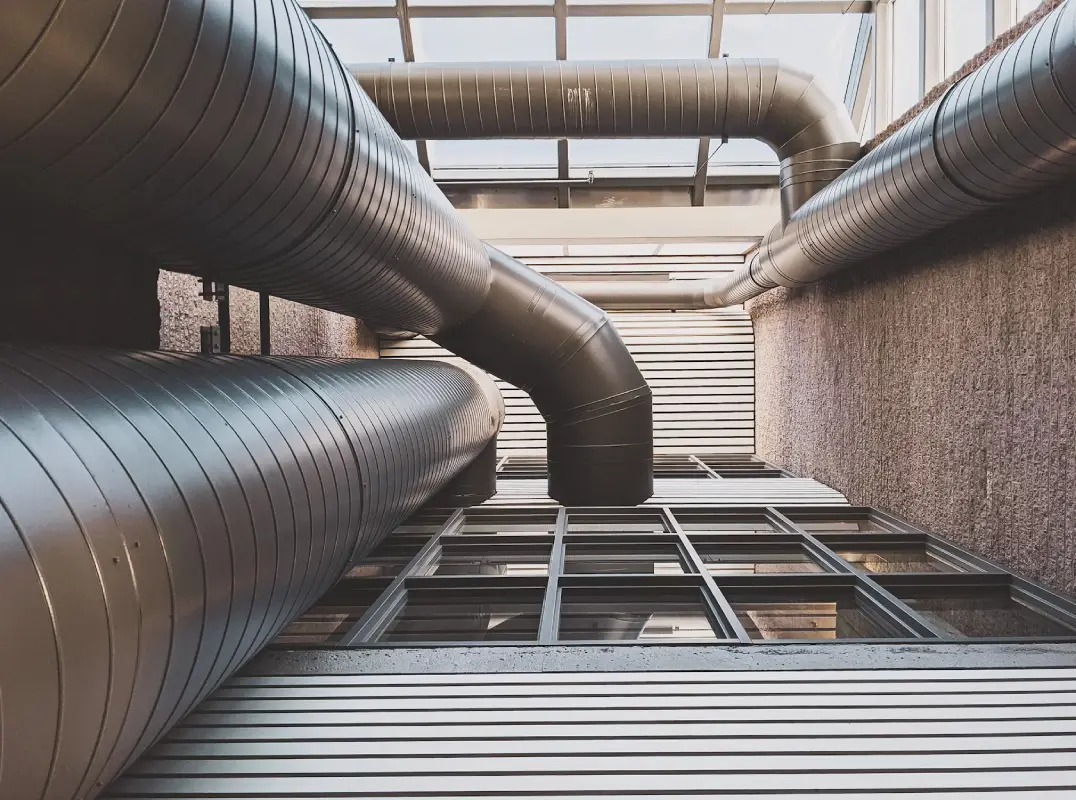Michigan homeowners know how critical it is to keep their HVAC systems in top condition, especially with the unpredictable weather swings that come with living in the Midwest. In Fenton, MI, where summer heat can climb and winters bite hard, maintaining indoor comfort depends on a reliable heating and cooling setup. With older homes and newer developments blending throughout the city, HVAC systems face a wide range of usage patterns and climate-related stressors. Many residents delay servicing their units until a breakdown happens, which can cost far more than routine maintenance. Recognizing early signs of trouble can save money, time, and headaches in the long run.
1. Strange Noises Coming from the Unit
HVAC systems aren’t silent, but they shouldn’t bang, clang, hiss, or squeal either. If you hear grinding or rattling, something might be loose or broken inside the unit. High-pitched squeals could mean the belt is slipping or bearings need lubrication. Banging sounds may indicate a part is disconnected or failing entirely. These noises won’t go away on their own. Ignoring them can lead to more damage or even complete system failure. The sooner you get the system checked, the easier and cheaper the fix will be. Don’t wait until your unit stops working completely—treat unusual sounds as an urgent warning.
2. Uneven Temperatures in Different Rooms
When one room feels like a sauna and another like an icebox, your HVAC system isn’t distributing air properly. Inconsistent airflow can come from duct issues, clogged filters, or a malfunctioning thermostat. In Fenton, MI, older homes with outdated ductwork often experience this issue due to structural quirks or renovations. A qualified AC contractor in Fenton, MI, can diagnose whether it’s a system imbalance or a mechanical fault. They’ll help restore comfort to every corner of your house. Staying ahead of this problem not only improves comfort but can also reduce energy bills and prevent long-term wear on your unit.
3. Higher Than Usual Energy Bills
A sudden spike in your energy bill is more than just annoying—it’s a clear signal your HVAC system isn’t running efficiently. When the unit works harder than it should to maintain the desired temperature, it consumes more energy. This could be due to dirty filters, low refrigerant levels, leaky ductwork, or a failing component. Compare your bill to the same time last year and consider whether your usage has changed. If not, the HVAC system might be the culprit. Quick intervention can help lower your bills and extend the life of your equipment. Don’t wait for bills to skyrocket further.
4. Frequent Cycling On and Off
If your HVAC system constantly turns on and off, it’s short cycling—and that’s not good. This problem reduces efficiency, puts strain on the compressor, and often points to deeper issues like a faulty thermostat, refrigerant leak, or oversized system. It also increases wear and tear, making the unit age faster than it should. You might notice your home never feels quite right—too hot, too cold, or changing every hour. These irregular patterns stress your comfort and your wallet. Have a technician assess the system to correct the root cause. Catching short cycling early prevents more costly repairs or replacement.
5. Weak or Limited Airflow
Poor airflow affects your HVAC system’s ability to regulate temperature and remove humidity. It’s a common sign of clogged filters, blocked vents, or failing blower motors. You may notice that vents blow air weakly, or it takes forever to cool or heat a room. Over time, poor airflow puts strain on your system, making it work harder and increasing the chance of a breakdown. In some cases, it might even signal an issue with your air ducts, such as leaks or blockages. A quick airflow test from a technician can pinpoint the problem, helping restore comfort and reduce energy waste.
6. Unpleasant Odors from the Vents
A strong or unusual odor coming from your vents signals something is wrong inside your HVAC system. Musty smells typically indicate mold or mildew, often caused by excess moisture or clogged drainage lines. A burning smell could mean an electrical issue, such as overheating wires or dust buildup on the heat exchanger. Either situation requires immediate attention. Lingering odors affect indoor air quality and can trigger allergies or other health concerns. You should never ignore persistent or odd smells. Have a professional inspect your system to identify the cause and recommend a safe, effective fix before things spiral out of control.
7. Thermostat Not Responding Properly
Your thermostat acts as the control center for your HVAC system. If it stops responding or gives inaccurate readings, your entire system may suffer. Common symptoms include the HVAC unit not turning on, shutting off too soon, or running longer than necessary. These issues can stem from faulty wiring, dead batteries, outdated technology, or internal sensor problems. Smart thermostats add convenience, but they still require proper installation and occasional recalibration. If you’re constantly adjusting the temperature or feeling like the system isn’t doing what it should, your thermostat likely needs professional attention. Fixing it early avoids unnecessary wear on your HVAC system.
8. Excessive Humidity Indoors
A healthy indoor environment balances temperature and humidity. If your home feels damp, sticky, or muggy, your HVAC system may not be dehumidifying air properly. High humidity can cause wood to warp, paint to peel, and mold to grow—all issues that damage your home and threaten your health. This problem tends to worsen during summer months when air conditioners are under heavier strain. If your HVAC system lacks a dehumidification feature or it’s malfunctioning, rooms will feel warmer than they are, even if the AC runs nonstop. Have a technician inspect your system and, if necessary, recommend a solution to manage moisture.
Your HVAC system works hard to keep your home comfortable, especially during extreme Michigan seasons. By recognizing these ten early warning signs, you can avoid the stress, cost, and inconvenience of a full system failure. Regular maintenance, timely inspections, and prompt repairs all help extend your unit’s lifespan and ensure it performs at its best. Don’t ignore the small signs—what starts as a weak airflow or strange sound can quickly lead to complete breakdowns. Stay ahead by being proactive, and you’ll enjoy a cooler summer, a warmer winter, and peace of mind year-round. Your comfort depends on it.














